A decade after having been sexually abused by a man 28 years older than herself, Una (Jil Devresse) has tracked down her offender. Since he’s finished serving his prison sentence, Ray (Jules Werner) has been living under a different name, slowly rebuilding his life from nothing or almost nothing – and he’s done well enough for himself to end up in a trade magazine, which has allowed Una to find him and pay him a visit to his workplace.
Ray even pretends to be in a stable relationship with a woman one year older than him, if Una (or, for that matter, the spectator) is to believe him, the reliability of Ray’s assertions about his actual life being one of the crucial questions of this short, poignant play where we never leave the huis clos of Ray’s workplace. With only two concurring versions of things, it seems rather difficult to establish clarity about what has occurred, even though the nature of the abuse that took place is questioned by neither Una nor Ray. But there are facts, and there is the interpretation of facts.
While Ray has relocated far away, Una’s parents never moved, a shrink having told her that staying in town would give her a sense of continuity or some such moronic textbook advice on how to cope with trauma. As a result, her relationships with men have been difficult, bordering on the pathological: she tells Ray she’s had sex with over 80 men, giving her parents, who desperately wanted her to find a decent man, all the anatomical details of her short-lived affairs.
While Ray, an adult man, could move on, Una wasn’t able to do so – because it wasn’t up to her, because she was still far too young to be entitled to such a thing as self-determination. In this gap between how both reacted to what happened between them, the gruesome nature of it is simmering. While Una doesn’t shy away from confronting Ray with what he’s done, while she doesn’t mouth her words, trying to get her abuser to assess what he’s done, the latter clearly experiences difficulties with expressing himself, his sentences very often on the threshold of pronunciation, his stammered infinitives like a car engine having trouble to start.
Yet, under the surface of these contrasting attitudes, there’s a lot going on – there’s vulnerability and regret, there’s shame on both sides, and, yes, there’s the unspeakable residue of desire, something that Harrower, while obviously condemning paedophilia, dares to speak of, the author and his two characters, convincingly incarnated by Devresse and Werner, exploring the grey zones of this taboo subject, Ray constantly insisting that he’s not like them, that he’s studied their behaviour, explaining how he never had an erection when he first met her at a neighbourhood barbecue, as if this were proof of him having been well-intentioned. And it seems that Una, for all her anger and her scepticism, almost wants this to not be just another piece of self-delusion one of those sick men that proliferate in contemporary fiction talks himself into.
Breaking taboos
While this cultural week has been dedicated to taboo topics about female sexuality and the female body – I’ve written about abortion in the context of Larisa Faber’s „Good Girls“ and about ovarian cancer in the tragic context of Mimi Parker’s death –, „Blackbird“ seems to be the sombre peak. The play starts of in medias res, its rhythm is relentless, visceral and violent, with Devresse and Werner often both talking at once, each of them locked up in their own world of trauma, the only connecting point being their shared experience of his abuse.
Devresse is utterly convincing as an angry Una – she throws trash at or tries to hit Werner’s Ray, her rage barely concealing the sadness of a young woman who’s been just as damaged by the subsequent shaming than by the traumatizing relationship. In a poignant scene, she confesses that she refused to tell the police that he had touched her and how they drugged her in order to take samples of his semen inside of her, her expression oscillating between anger, guilt, shame and something like regret.
Even though this is clearly Devresse’s play, Werner is spot-on in his role as a man who tries to forget, to repress what happened and who, between bursts of violence and moments where he seems riddled by guilt, remains enigmatic enough to let the play build up to the last twist.
Claire Parsons’ electropop, reminiscent of something The Cardigans could’ve come up with had they ventured into dark, moody tracks with brooding, menacing synths, interrupts the play twice, allowing for some room in between the scenes of a suffocating intensity. If it is clear that the last half of Muller’s tense, dense and precise direction doesn’t suffer any musical intermezzi, it still seems like a wasted opportunity that Parsons hasn’t been involved more consequently, her song fragments almost dangling like a cable waiting to be plugged in.
Finally, Anouk Schiltz’s stage setting sacrifices the spectacular for a cold, efficient, simplistic design. While her last work for Centaure, Marja-Leena Junker’s adaptation of „Ensemble“, played on the contrast between the cosy scenography and the sadness of living with a mentally disabled son, the minimalistic setting of Ray’s bleak workplace – the walls are made of corrugated iron, there’s waste all over the place and the centrepiece of the décor is an overcrammed plastic bin – perfectly reflects the unsettling atmosphere of what’s unfolding in front of our eyes: a règlement de comptes between two individuals marked by trauma that gloomily hints, towards its end, at the impossibility of resolution and forgiveness.
The play can be seen at Théâtre du Centaure on the 16th, the 18th, the 23rd and the 25th of November at 20.00h and on the 17th, the 20th, the 24th and the 27th of November at 18.30h


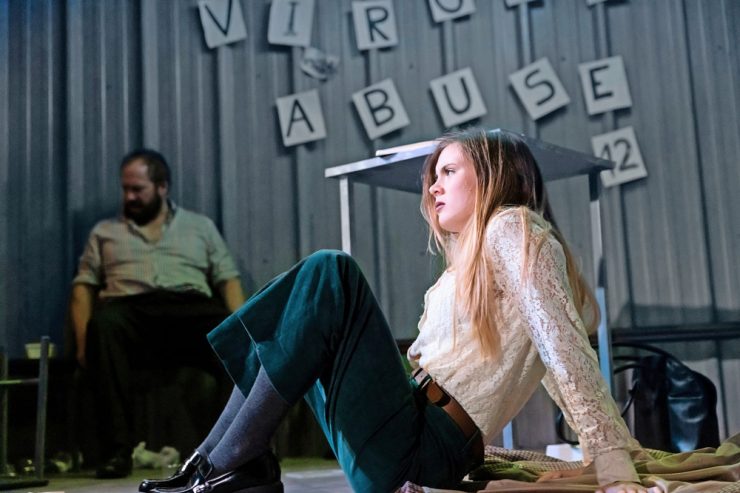


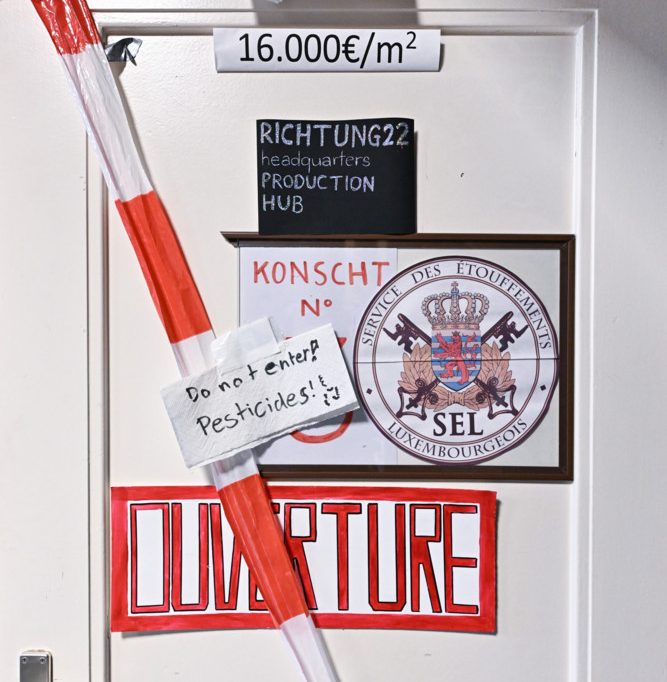
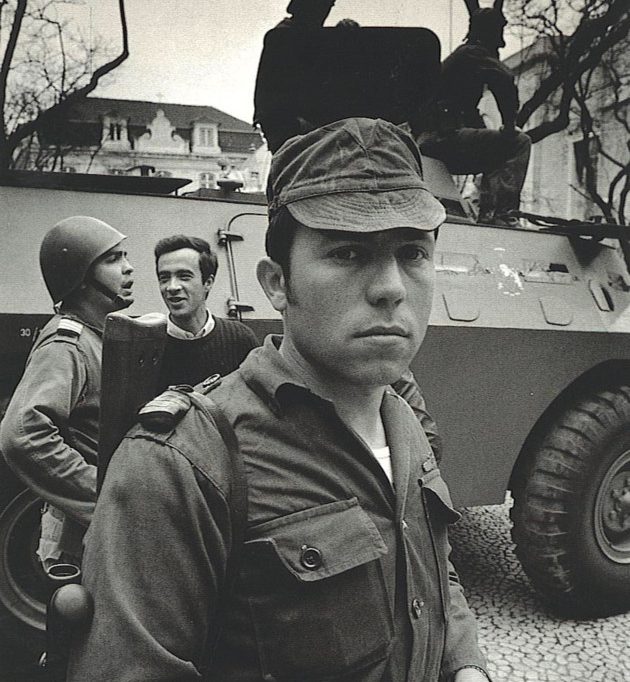

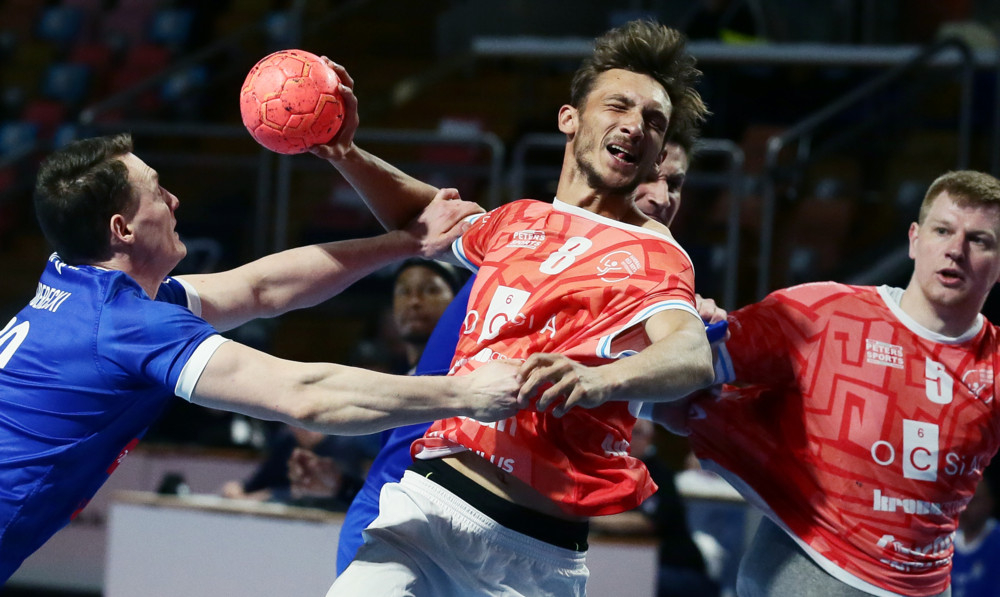
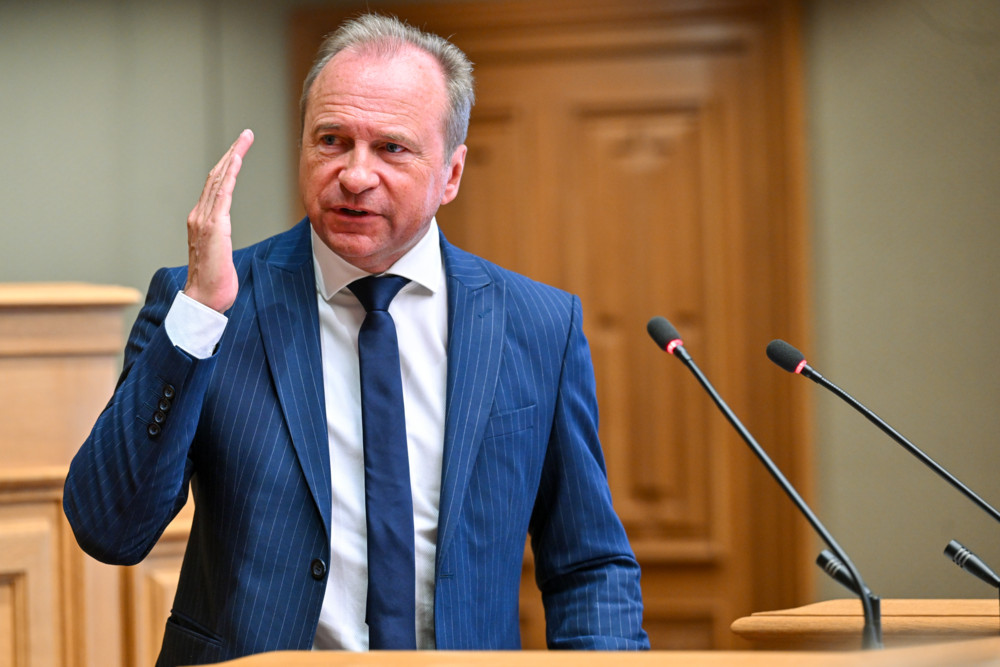
Sie müssen angemeldet sein um kommentieren zu können